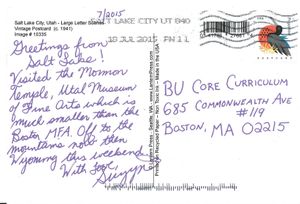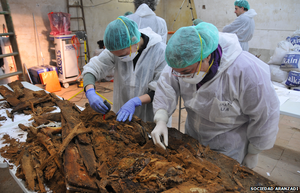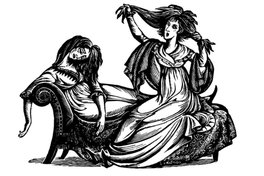As the core office is situated on a college campus, we have, ever so often, heard variations of this unfortunate conversation:
Timmy: "How'd you do on the paper, Josh?"
Josh: "I did alright. You?"
Timmy: "Oh you know, just a 98. I'm surprised though. I started the book yesterday, watched TV until 1am. Wrote it mostly this morning, and turned it in right at 12pm when it was due."
Josh: [Deflates and looks with chagrin at his perfectly decent, stressed- over- for-a-week-paper, which received an 83%] "Oh. Cool. I like, I ... hey is that a man walking a miniature pig down Comm Ave? Let's say hello!"
Timmy, who put in no apparent effort towards his schoolwork, obtained stellar results. Josh, who tried hard, did only so-so. How annoying.
In a piece in the New York Times, author John Tierney defines the Chinese terminology for this paradox--"wu wei," or "effortless action:"
"Pronounced 'ooo-way,' it has similarities to the concept of flow, that state of effortless performance sought by athletes, but it applies to a lot more than sports. Wu wei is integral to romance, religion, politics, and commerce. It's why some leaders have charisma and why business executives insist on a drunken dinner before sealing a deal."
The real question is how does one achieve this sense of "wu-wei?" Is it, as Confucius suggested, through the disciplined practice of virtue? Or is it, as the Tao suggests, through accepting the world as it is, and going with the flow?
Perhaps the answer lies in the words of a wise, somewhat green Jedi, who said: "Do or do not do. There is no try."






 To current and former Core students, Dante's Inferno brings to mind images of a nine-tiered Hell filled with sinners of various sorts. CC102 students, studious as they are, know the nine circles and their inhabitants like the back of their hands.
To current and former Core students, Dante's Inferno brings to mind images of a nine-tiered Hell filled with sinners of various sorts. CC102 students, studious as they are, know the nine circles and their inhabitants like the back of their hands. First thing in the morning, the Core office checks
First thing in the morning, the Core office checks 

